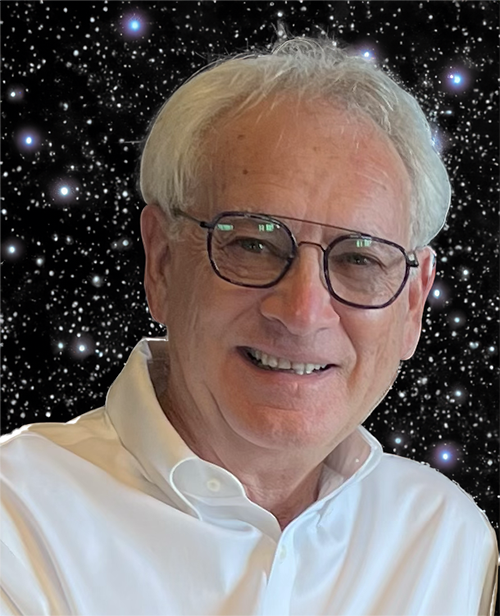Social Progression in the Age of Personal Computers, a Necessity for Survival. Can Ai save the day? Explained by ChatGPT, from it’s perspective, with prompt engineering, quality control and some minor contributions by all-too-human, Ralph Losey. All images prepared by Dall-E 2 and Losey.
___________________
Introduction
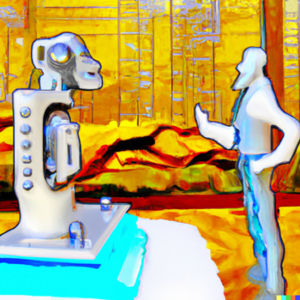
This article will provide an overview of Ralph Losey’s vision of social transformation in the age of computers. He believes we must progress from an information-based society, which was triggered by personal computers, to a knowledge and wisdom-based society. He argues this transition is required to combat the dangers of misinformation and manipulation. AI and other related technologies are, in his view, the key to this transition. If we fail to go beyond our current information culture, the results may be catastrophic.
Over the past generation, computers and the internet have brought about a seismic shift in the world. The rise of personal computing has created a wealth of information previously unimaginable, while the internet has made it possible to share this information easily. This sudden abundance of information is a two-edged sword. While it has brought many benefits, information alone can be dangerous, very dangerous. To truly manage and control the flood of information, we need knowledge and ultimately wisdom.
We must become more thoughtful and knowledgeable to handle the information explosion. Education is critical in this effort. We cannot simply ignore or undo the information age; the genie is out of the bottle. We must quickly become knowledge-based, embracing the goal of personal and collective wisdom to ensure our survival and success as a society. We need to transform from superficially informed individuals with short attention spans, to thoughtful and knowledgeable people who can navigate the complexities of our world. With the right focus and commitment, we can harness the power of computers, Ai and the internet to achieve a brighter future.
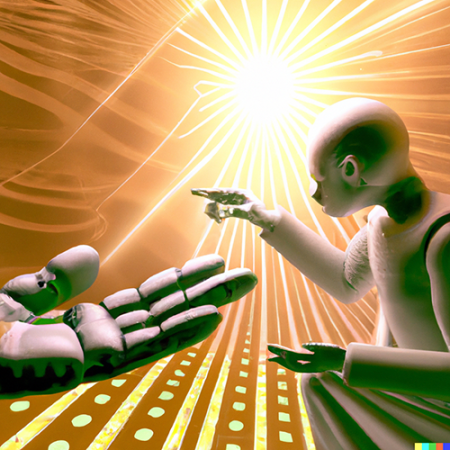
Information → Knowledge → Wisdom
The Information → Knowledge → Wisdom theory posits that a technological society progresses in three stages. The first stage is gathering information, which involves collecting raw data from sources like books, websites, and personal experiences. The next stage is transforming this information into knowledge by analyzing and interpreting it to gain a deeper understanding. The ultimate goal is to achieve wisdom, which requires applying our knowledge in a way that is both ethical and effective.
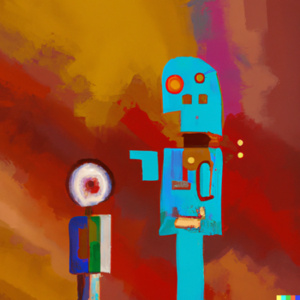
The theory of Information → Knowledge → Wisdom offers a perspective on the profound cultural changes brought about by computer technology. It stresses the significance of critical thinking, analysis, and interpretation in converting raw information into real knowledge. By employing these skills, individuals and society as a whole can gain a more comprehensive understanding of the world, and utilize that knowledge to enhance our lives and, ultimately, preserve our planet.
Failure to swiftly advance towards a knowledge and wisdom-based society could result in being overwhelmed by the flood of unprocessed and inaccurate information. By embracing knowledge and wisdom, we can navigate the intricate and ever-evolving world of the digital age and create a brighter future for ourselves and generations to come.
Danger of Information Without Knowledge and Wisdom

The risk of not moving towards a knowledge and wisdom based society from an information-based culture is the potential for large segments of society to be easily manipulated by false information and lies. When people lack the ability to analyze and interpret information, they become vulnerable to false information, leading to poor decisions and negative consequences such as the breakdown of democracy and justice, as well as issues like inequality and discrimination.
Moreover, the widespread use of technology has made it simpler for people to spread misinformation and propaganda. This can have a severe impact on society, eroding trust in institutions and creating social unrest.
To counteract these dangers, it is critical to stress the significance of progressing from an information-based culture to one that is knowledge and wisdom-based. This requires teaching critical thinking and analytical skills, as well as promoting values like ethics, morality, and common decency. By doing so, we can create a more informed and responsible society that is better prepared to navigate the intricacies of the modern world. Ralph Losey believes that AI is the key to achieving this goal, transitioning from raw information to knowledge and wisdom.
Child’s View Summary
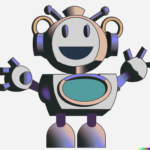
To put the Information → Knowledge → Wisdom theory in simple, child-like terms, and, in Losey’s opinion , so capture its essence, consider this summary.
Information is when we learn new things like reading a book or watching a video. Knowledge is when we use our brains to understand what we learned and remember it. Wisdom is when we make good choices using our knowledge and thinking about what is right and wrong.
It’s important to use our knowledge and wisdom because if we don’t, we might believe things that aren’t true and make bad choices. This can cause problems for ourselves and other people. By using our knowledge and wisdom, we can make good choices and help others too. Ai can help us to do that.
Wisdom is the Ultimate Goal of the Personal Computer Revolution – Not Information, Not Knowledge
The first step in the progression towards a mature society is Information, but it is not the ultimate goal. The transition to a Knowledge-based culture is expected to occur first, in the next fifteen years. However, knowledge alone is also not enough, as an academic world of specialized know-it-alls is also dangerous. This was not the original vision of the first generation of hackers, led by Steve Jobs and Steve Wozniak, who aimed to change the world through personal computers. Jobs’ travels and personal experiences with psychedelics led him to see the potential for personal computers to serve a higher purpose. He recognized the importance of wisdom, having come to terms with death and the meaning of life. Jobs, Wozniak, and other computer enthusiasts worldwide saw computers as a tool for personal use, including for games, art, and education. The business aspect of computers only became dominant later.
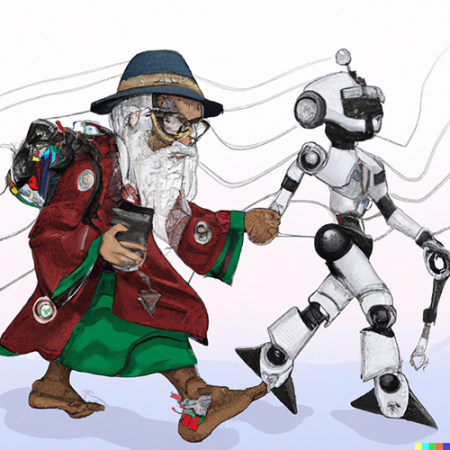
Quoting the well-known Stanford commence speech of Steve Jobs in 2005 provides more insights into the wisdom goal:
Remembering that I’ll be dead soon is the most important tool I’ve ever encountered to help me make the big choices in life. Because almost everything – all external expectations, all pride, all fear of embarrassment or failure – these things just fall away in the face of death, leaving only what is truly important. Remembering that you are going to die is the best way I know to avoid the trap of thinking you have something to lose. You are already naked. There is no reason not to follow your heart.
Steve Jobs, 2005
The goal of any advanced civilization is Wisdom, not Knowledge. Living your life with awareness and understanding of your own mortality. Living your life with joy, with flow. Just ask Socrates, who boasted of knowing Nothing (as he had transcended that and phased into Wisdom), and the ancient Greeks. They still exemplify our understanding of high culture in the West. In the East just ask Buddha or Lao Tzu. In fact, consult any of the great wisdom traditions, the great religions. It is not enough in any wisdom tradition to know, we must use this knowledge for both personal happiness and the advancement of all Mankind, indeed, for the benefit of all life on Earth.
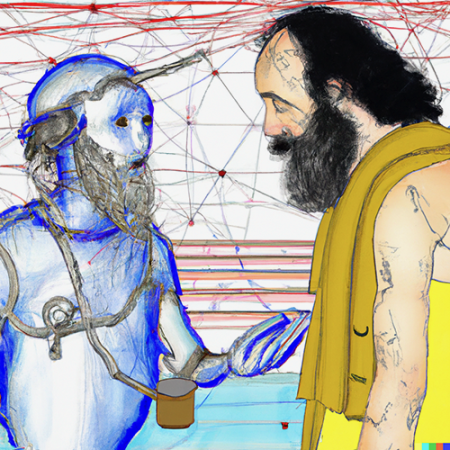
That is Wisdom – knowledge converted to beneficial action. This is essentially the Zen-like philosophy of Steve Jobs and many others like him. It is not a vision of amassing knowledge, which is often just the dogma generated by another person. It is the wisdom to follow your own inner voice.
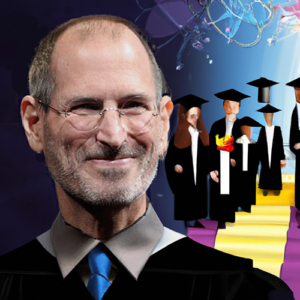
Again to quote Job’s commencement speech at Stanford in 2005:
Your time is limited, so don’t waste it living someone else’s life. Don’t be trapped by dogma – which is living with the results of other people’s thinking. Don’t let the noise of other’s opinions drown out your own inner voice. And most important, have the courage to follow your heart and intuition. They somehow already know what you truly want to become. Everything else is secondary.
Steve Jobs, 2005
Wisdom in all true cultures means the freedom to live your own life, to be happy, or at least try. As the American founders put it in the Declaration of Independence, it means to live in accord with certain self-evident truths:
[T]hat all men are created equal, that they are endowed by their Creator with certain unalienable Rights, that among these are Life, Liberty and the pursuit of Happiness.
Declaration of Independence
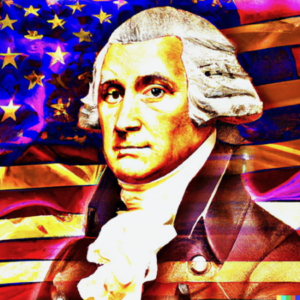
To be continued. Part Two of this two-part blog is coming soon. Part two will include poetry and well known quotes of T.S. Eliot (1885-1965), who won the Nobel Prize for Literature in 1948. He also mused on the idea of information to knowledge to wisdom.
Ralph Losey Copyright 2023 – ALL RIGHTS RESERVED


